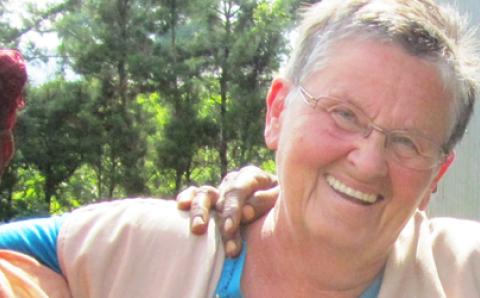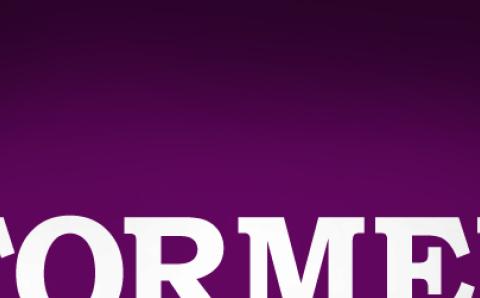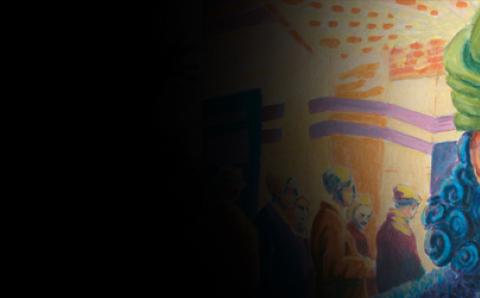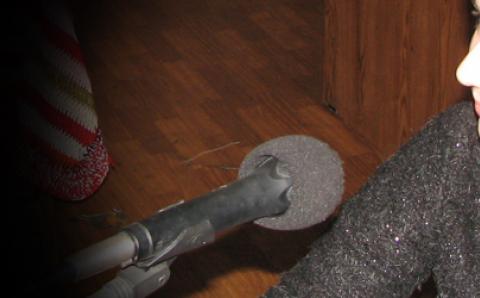A well-executed dance is beautiful. Both partners carry out their own steps while providing space for their partner’s steps. All the while, they cling to each other in an embrace just strong enough to keep them from flying apart.
That is what academic freedom in a Reformed Christian college should look like. The college and the church community that supports it are partners in a dance. Both must give the other enough space, yet they need to cling together in a healthy tension that keeps them from breaking apart.
On paper it can seem pretty clear-cut. But sometimes research by scholars in pursuit of truth can bump up against the boundaries of Scripture and the Reformed doctrines that both the school and the church community embrace.
When that happens, how do academics, college administrators, and the church communities that support them balance the desire for academic freedom with the desire to remain faithful to Scripture and our Reformed confessions?
How do they stay together in that beautiful dance?
What Is Academic Freedom?
Anthony Diekema, former president of Calvin College, wrote the book on academic freedom and Christian higher education—literally. Many consider his book Academic Freedom & Christian Scholarship to be the authoritative work on the topic.
Diekema defines academic freedom as a sacred trust, one that is granted only to scholars and members of an academic community.
Gaylen Byker, current president of Calvin College, defines academic freedom as “the freedom of both the institution and faculty members to pursue truth without undue restraint,” freedom that is not understood as the absence of constraints but rather freedom to do what is right.
Some would say that the boundaries of the Bible and the Reformed confessions put constraints on professors in our church-related colleges that fly contrary to the whole notion of academic freedom.
But academics and administrators in colleges related to the Christian Reformed Church beg to differ, saying that there are just as many, if not more, constraints on their colleagues in state-owned secular schools. In fact, they feel that they have more freedom even while they are bound to Scripture and the confessions.
James K.A. Smith, professor of philosophy at Calvin College, said, “Most of us did our graduate training at a secular public university and it was clear all the things you were not allowed to think, implicit rules and boundaries and limits to what you could think and say. At Calvin, there are parameters, but they are on the table and everyone knows what they are, and they [don’t] sway with the winds of political ideology.”
What Role Do the Confessions Play?
Calvin College, which is owned by the CRC, requires professors to sign the Form of Subscription that officebearers in the church also sign, indicating faithfulness to Scripture and the Reformed confessions.
Other CRC-related colleges are supported by the CRC community but are independent in governance. In some form or another, all of them require professors to sign on to the mission of the institution, which finds its roots in the Scriptures and in the Reformed confessions.
Byker said the confessional commitments serve both a centering and a boundary function. “Within this confessional context, faculty members are free to engage in intellectual, moral, and spiritual inquiry, to discern the shape of a faithful Christian way of life and understanding of God’s world.”
Steven Timmermans, president of Trinity Christian College in Palos Heights, Ill., compares the confessions to a great cloud of witnesses. “The Holy Spirit has guided Christians over the centuries to agree upon biblical interpretation,” he said. That gives the confessionally based college the added dimension of all those Christians over the centuries serving as a “great cloud of witnesses” observing scholars as they pursue their work.
Loren Haarsma, a physics professor at Calvin College, said the confessions provide a central starting point, but sometimes give competing theological concerns. “For example,” he said, “in the last century, debates about card playing and theater attendance pitted good theological concerns against each other: on the one hand, concerns about practicing piety and avoiding worldliness; on the other hand, concerns about the primacy of God’s grace and avoiding legalism.”
Sometimes it is the confessions themselves that come under scrutiny. Lee Hardy, a professor of philosophy at Calvin College who has written about academic freedom, said, “We can speak of conducting research and reflection within the boundaries set by the confessions; but we can also speak of research and reflection on those boundaries themselves. The first thing we should note is that the confessions are not infallible; the second thing we should note is that they (plus their interpretation) nonetheless represent our tradition’s best understanding to date of what is taught in the Word of God. So the confessions should not be immune from critical reflection; but neither should such reflection be undertaken lightly.”
Because these are deeply held and deeply loved theological concerns, the debate can become very emotional and threatening.
And there’s the rub.
When the Dance Gets Intricate
When one partner starts dancing outside the accepted pattern, how much room does the other partner give to accommodate those steps?
When emotions run high and tradition runs deep, how much room should the church, and college administrators, give to research that they feel may be straying beyond the bounds of the confessions and thus the commonly-accepted interpretation of Scripture?
Harry Fernhout, president of The King’s University College in Edmonton, Alberta, said that, first and foremost, faculty members need to demonstrate that the motivations come out of the heart of the institution’s confessional stance and mission. Also, the research being put forward should fall into that scholar’s area of expertise.
Hardy said a church-owned college should bend over backwards to defend and protect scholars who are working in good faith on controversial issues. “A college is where the church can do its thinking. This is not to say that scholars can do no wrong. But a college should always start with protection,” he said.
Haarsma concurs that such research is one of the ways colleges serve the church. “Whenever scholars have the expertise and feel led by God to study one of these controversial areas, church-affiliated colleges should encourage these scholars to do so,” he said.
“If a scholar’s work is sound and raises good questions, even if the work is controversial, and even if it doesn’t have all the answers neatly tied together, colleges should help communicate the scholar’s work to the church as a whole. In fact, the college might do more than merely communicate that work, but even celebrate it,” he added.
Haarsma has communicated some of that controversial research himself. He and his wife, Deborah Haarsma, also a physics professor at Calvin, cowrote Origins: Christian Perspectives on Creation, Evolution, and Intelligent Design (Faith Alive Christian Resources), a book that explores many theories of the origins of human life that are held by Christians, many of which are in conflict with each other.
Share the New Steps with the Church
Rev. Peter Jonker is pastor of Woodlawn CRC, a church that meets on the campus of Calvin College.
He said it is important that faculty at a Christian college keep in mind the faith community in which scholarship takes place. “As [professors] do scholarship and offer conclusions, it isn’t with just the academic community in mind,” he said. “There are also the plumbers and carpenters and lawyers who are part of this community.”
He said that humility and respect for that community is important. “You present what you found in a way sensitive to them, because you’re part of this community.”
Rev. John Gorter agrees. He is pastor of Peoria (Iowa) CRC, where some members are sometimes deeply distrustful of what they hear coming out of the denominational college.
One way to ameliorate that distrust, he said, is to keep the people in the pew informed of the questions and struggles the professor is facing. “I know some don’t involve the constituency because they don’t sense the need for it, or are too busy, but some don’t do it because there is a fear that there are these wild-eyed non-thinking fundamentalists ready to lynch [them.] This is hurtful and almost insulting, basically saying ‘you’re out of it, you’re backwards.’” That is how deep distrust develops, Gorter said.
“I really appreciate the book by the Haarsmas. That was wonderful,” he said. “What that did was give us respect and dignity, saying, ‘We’re going to tell you our struggles and invite you to join us in our struggle so we can do this together.’”
Gorter said that when the church isn’t engaged, then new ideas get dumped in the lap of pewsitters, leaving them wondering where in the world those ideas have come from.
Smith acknowledges that how a scholar engages with the faith community can make a big difference.
“We have the luxury to think through hard questions that our brothers and sisters in Pella don’t have the time or luxury for,” he said. “But [we have] a responsibility to do it in a way sensitive to and charitable toward where our wider community is at. If we can’t conduct our work with that dynamic, we abuse the freedom that is given.”
Does the Church Know Its Steps?
Jonker and Gorter both acknowledged, however, that the respect must go both ways. “When a scholar finds something that seems to challenge what my community believes, we need to have respect for and trust in our scholars,” said Jonker. “We send them out on the frontiers to scout on the edge of things we have trouble seeing. This is how the process works. We’re arguing about ideas, but the process breaks down at the level of trust.”
Gorter said pastors have a special responsibility to help congregants listen. “Let’s not demonize each other, not assume the worst. Assume the best, really listen, try to understand where [scholars] are coming from” he said. “Ask how we can be faithful to the Lord and his Word together.”
Smith said the church also has to do its homework. “I do believe that the things we are wrestling with show that we take the confessions more seriously than a lot of CRC congregations that have been hijacked by a generic mega-church evangelical mentality where the confessions are not a living document,” he said. “You can’t just trot out confessions when you want to put up a fence.”
In the Dance Together
Fernhout points out that the CRC has undertaken the responsibility of supporting vibrant Christian higher education, so it has to accept what goes with the territory: creative engagement with issues. At the same time, it can serve as a corrective for ideas that are moving in the wrong direction or that are moving too quickly.
“In a healthy situation you have a back and forth movement between the academic endeavor and the church,” he said.
Just like a beautiful dance.
Further Resources
The Colossian Forum describes itself as a safe place to ask risky questions, particularly where faith and science intersect, in both practical and theological ways. It does this through retreats, scholarly research, and an extensive web presence. Especially interesting is an eight-minute video on the website called “More Light, Less Heat.”
Academic Freedom & Christian Scholarship by Dr. Anthony Diekema.
“Strengthening Procedures around Confessional Commitment and Academic Freedom at Calvin College” [PDF] is one of several documents available on the Calvin College website.
“Between Inculcation and Inquiry: A Virtue of Tolerance in the Liberal Arts Tradition” [PDF] is a paper by Dr. Lee Hardy on academic freedom.
Origins: Christian Perspectives on Creation, Evolution and Intelligent Design by Dr. Deborah B. Haarsma and Dr. Loren D. Haarsma. This link at Faith Alive Christian Resources provides samples of the book. There is also a pull-down menu that provides links to a whole series of articles by the Haarsmas and others related to each chapter of the book.
About the Author
Gayla Postma retired as news editor for The Banner in 2020.









